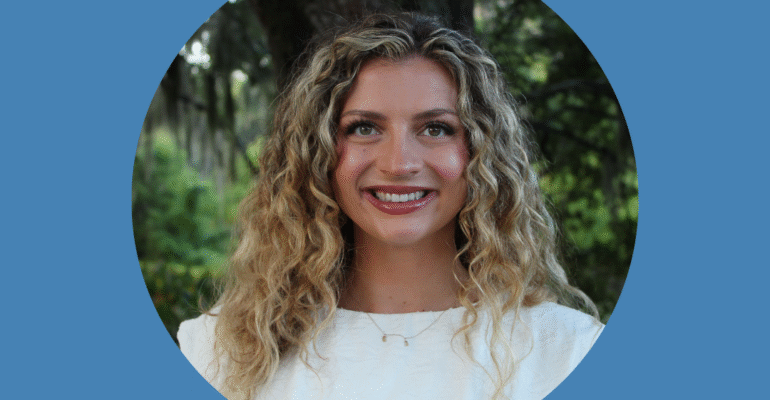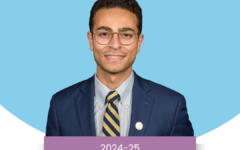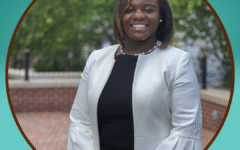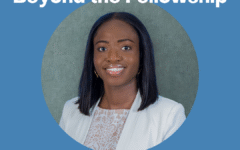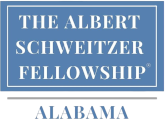Beyond the Fellowship: Insights and Experiences from Fellows for Life
October 29, 2025 2025-10-30 1:19Beyond the Fellowship: Insights and Experiences from Fellows for Life
What does leadership look like after the Fellowship year ends? In this ongoing Q&A series, we hear directly from Schweitzer Fellows for Life as they reflect on the lessons that have shaped their paths—personally, professionally, and in service to others. From career milestones to moments of impact, these stories highlight the enduring influence of the Fellowship and the many ways our alumni continue to lead with purpose.
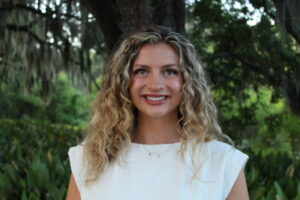
Name: Carolyn Grace Griffin
Fellowship Year: 2021-2022
Q: What are you currently doing professionally or academically, and how do you feel your Schweitzer Fellowship experience has helped you in your current position?
A: I am currently completing my orthodontic residency at LSU Health Sciences Center in New Orleans and will be graduating on June 20, 2025. After graduation, I plan to move back home to Dothan where I will begin practicing orthodontics in my local community.
My experience as an Albert Schweitzer Fellow has been foundational in shaping the kind of provider I aspire to be. The Fellowship gave me the opportunity to grow as a leader—learning how to take initiative, advocate for underserved populations, and implement a community-based project from the ground up. It also taught me the value of collaboration and teamwork. Working alongside mentors, community partners, and peers from different disciplines helped me develop a deep respect for the power of interdisciplinary care. Because of the Schweitzer Fellowship, I feel confident navigating collaborative environments, whether with general dentists, pediatricians, social workers, or educators. That experience has helped me become more well-rounded—not just as a clinician, but as a communicator and team member, prepared to meet the diverse needs of patients through partnership and service.
Q: What do you remember most about your Schweitzer Fellowship experience, or what was the most surprising or unexpected gain?
A: What I remember most about my Schweitzer Fellowship experience was how inspired I felt by my co-Fellows. It was truly incredible to be surrounded by so many passionate, driven professionals—each with a unique background—who were all willing to step up and serve their communities in meaningful ways. That sense of shared purpose and collective action was energizing and deeply affirming. It reminded me that even in the early stages of our careers, we have the power to make a real difference. One of the most surprising and meaningful gains was how much the Fellowship strengthened my confidence in leading outside of traditional clinical spaces. Through the process of developing and implementing my project, I learned how to advocate, communicate across disciplines, and adapt in real time when challenges arose. That hands-on experience—combined with the mentorship and support of the Schweitzer Fellowship community—gave me a clearer sense of who I am as a leader and how I want to show up for others in both professional and personal settings.
Q: Tell us more about your ASF project and how you feel it helped shape your career path or academic focus.
A: For my Schweitzer Fellowship project, my co-Fellow and I worked with UAB Sparks Dental Clinic to support patients with intellectual and developmental disabilities. We created a video “social story” to help patients feel more comfortable before their appointments, and we designed a lecture series to better prepare dental students rotating through the clinic. This experience helped shape who I am today—not just as a future orthodontist, but as a leader. It gave me the confidence to set meaningful goals and trust that, even if the path wasn’t always clear, I could find my way through persistence, cooperation, and reflection. I also learned how much I enjoy working toward long-term goals—something that really parallels what I love about orthodontics: building trust, investing in a process, and watching gradual, meaningful change unfold.
Q: How has the Fellowship influenced how you approach leadership, service, or community engagement?
A: The Albert Schwietzer fellowship completely reshaped how I think about leadership and service. I used to think leadership meant having all the answers, but what I learned through my year as a fellow is that leadership is really about listening, collaborating, and adapting. My year as a fellow taught me that lasting change comes from building relationships and trust, and meeting people where they are. ASF also changed the way I approached service. This project showed me that small, intentional efforts can have a big impact. As I begin practicing orthodontics, I have a strong desire to keep community needs at the center of my work.
Q: What advice would you give to current or future Schweitzer Fellows?
A: My biggest advice to current or future Schweitzer Fellows is: don’t be afraid to pivot. You may start with a detailed plan, but once you’re in the community, you’ll quickly realize that flexibility and responsiveness matter more than perfection. Some of our most meaningful outcomes came from adjusting our project in real time based on what the patients and clinic truly needed. Also—trust yourself. It’s easy to feel overwhelmed, especially while juggling school or clinical responsibilities. But the Fellowship showed me that setting long-term goals, staying committed, and taking small, consistent steps can lead to real, lasting impact. You don’t need to have everything figured out from the beginning—just keep showing up. Learn from your Fellow cohort. Being surrounded by so many passionate, driven, and creative people was one of the most inspiring parts of my Fellowship year. Everyone brings a different perspective, and you’ll grow so much by listening, supporting, and sharing with one another. And finally—enjoy it. This is a rare opportunity to step outside of your comfort zone and let the experience shape who you are—not just professionally, but personally. So lean into the process, and let it challenge and change you in the best ways.

